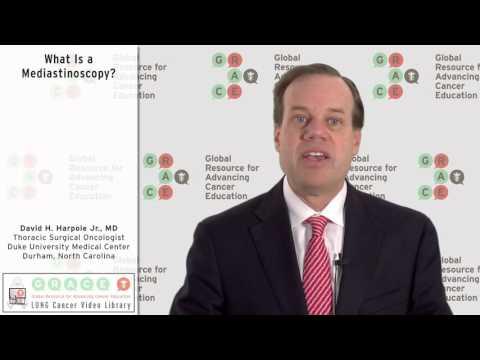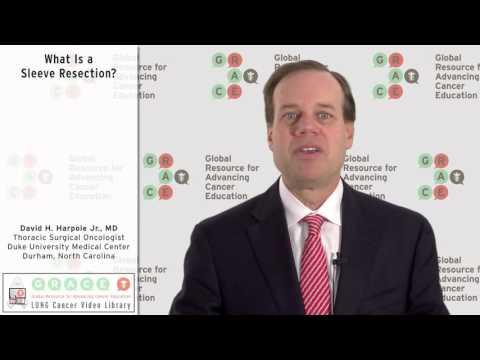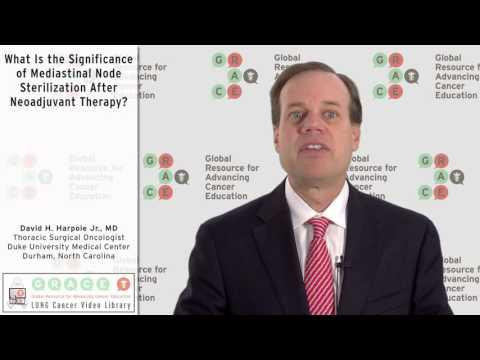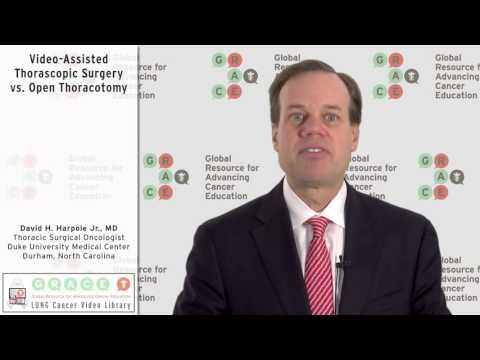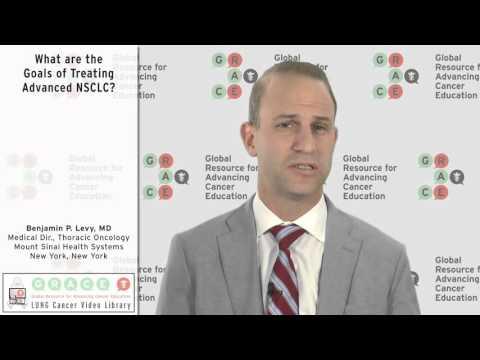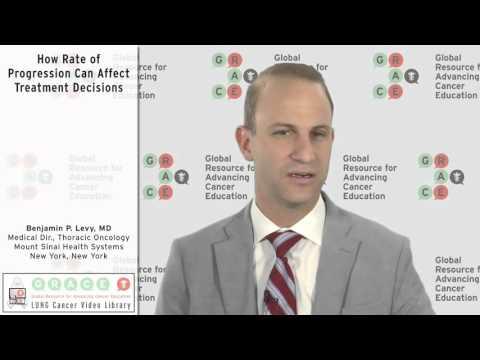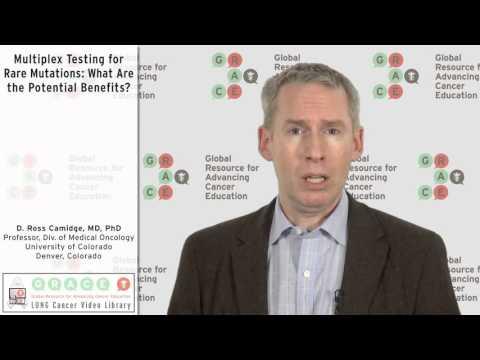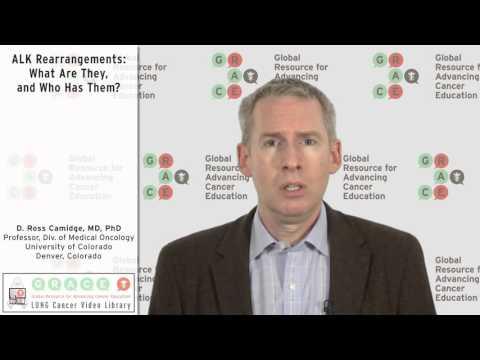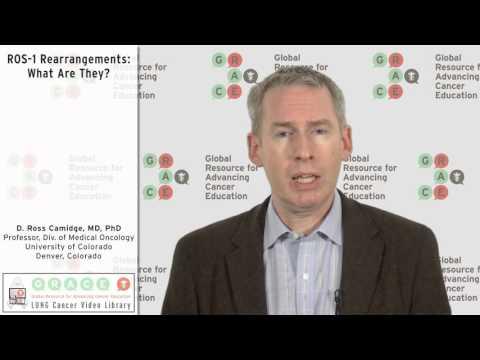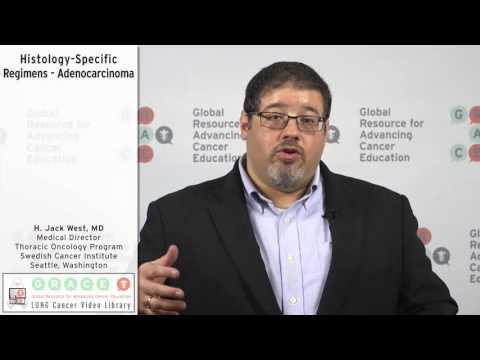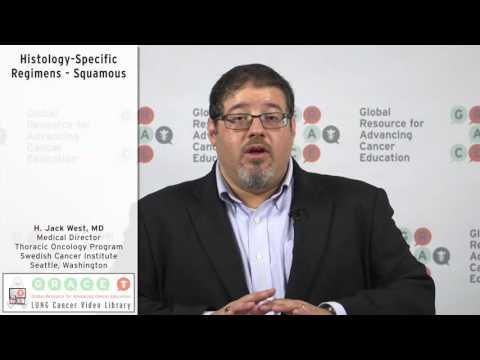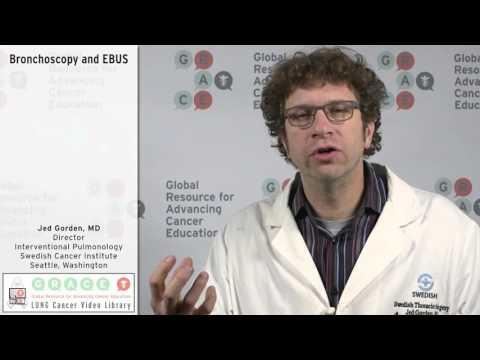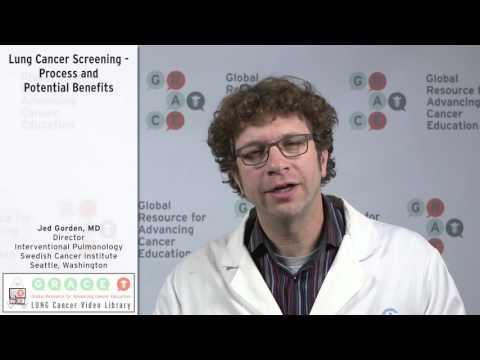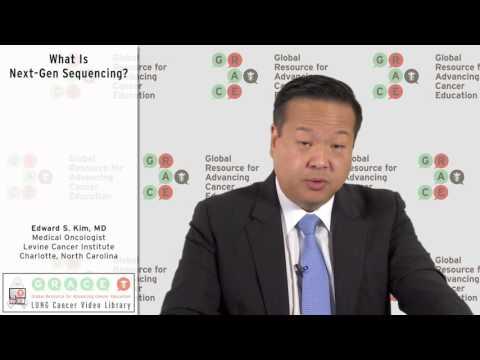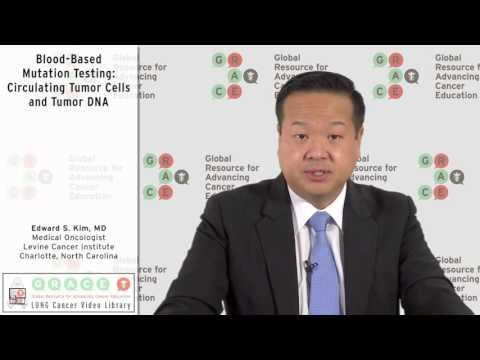Dr. David Harpole, Duke University Medical Center, describes the mediastinoscopy and its use in lung cancer staging.
Video Library
Search the Video Library
Video Language
Filter by Cancer Type:
Displaying Results 31 - 45 of 172
Dr. David Harpole, Duke University Medical Center, describes the sleeve resection and how it can help selected patients with large tumors retain lung function.
Dr. David Harpole, Duke University Medical Center, defines the concept of mediastinal node sterilization and its use after neoadjuvant therapy.
Transcript Historically, lung cancer has been treated with a large incision between the ribs, and in the early-mid ‘90s we began to investigate uses of the laparoscope, which was used to do gallbladders and so forth, in the chest. So we began using the devices to do more limited resections with this
Transcript I think there are several goals when treating a patient with advanced non-small cell lung cancer. For one I think we want to extend life, two is I think we want to palliate symptoms, and three is I think we want to improve quality of life. So all three of those goals are achievable, I
Transcript I think we know a lot now about how to treat patients with advanced stage lung cancer, and there are several things that we factor in when we treat patients. One is clearly the genetic makeup of their tumor — we tend to look at this when we’re trying to decide on a targeted drug for these
Transcript More and more, when people are doing molecular testing on their tumor, they’re not just getting one test and if it’s negative doing another test — that’s called sequential testing, they’re doing lots of tests at the same time — that’s called multiplex testing. There are certain good
Dr. Ross Camidge, University of Colorado, describes ALK rearrangements and the characteristics of patients who most often have them.
Dr. Ross Camidge, University of Colorado, describes ROS-1 rearrangements and compares them to ALK rearrangements in frequency of occurrence and response to treatment.
Dr. Jack West, Swedish Cancer Institute, addresses the issue of choosing a first-line chemotherapy regimen based on an adenocarcinoma histology.
Dr. Jack West, Swedish Cancer Institute, reviews the choices for a first-line chemotherapy regimen based on a squamous histology.
Dr. Jed Gorden, Swedish Cancer Institute, describes the differences between bronchoscopy and endobronchial ultrasound, highlighting the advantages of EBUS in diagnosis and staging.
Dr. Jed Gorden, Swedish Cancer Institute, reviews the lung cancer screening process, including low-dose CT scanning, smoking cessation, follow-up testing and counseling, and describes the potential benefits.
Dr. Ed Kim from the Levine Cancer Institute in Charlotte, NC summarizes the mechanism of next generation sequencing (NGS), how it can potentially be used, and its limitations in clinical practice today.
Dr. Ed Kim from the Levine Cancer Institute reviews the potential advantages and current limitations of blood-based testing for molecular markers using circulating tumor cells and circulating tumor DNA in identifying clinically important mutations.

